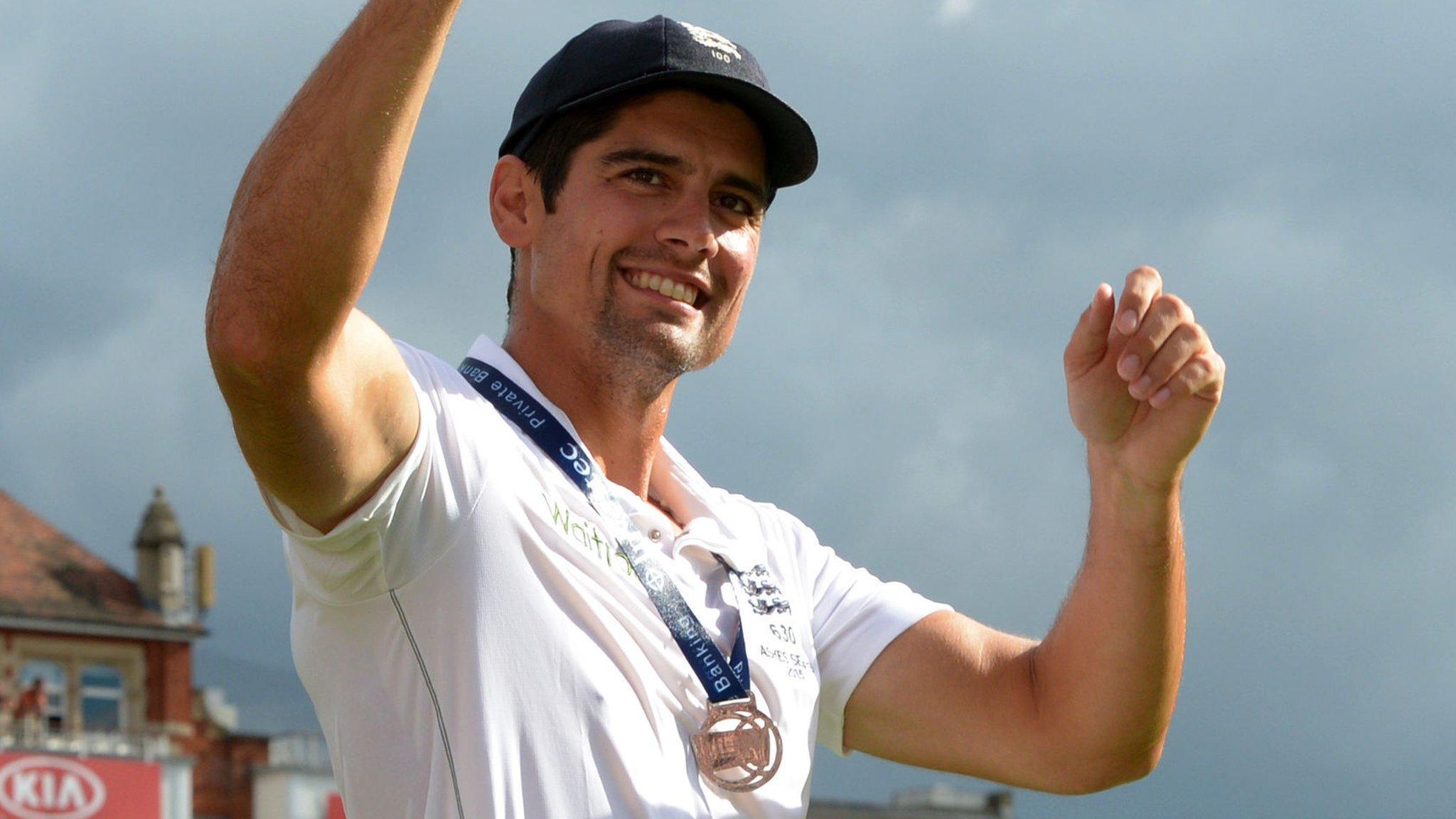Joe Root: Is England Test captain the right Alastair Cook replacement?
- Published
Joe Root announced as England Test captain
In the least surprising move since England last needed a new Test captain, England have appointed Joe Root as the successor to Alastair Cook.
Like Cook before him, Root has been promoted from vice-captain, an elevation such a formality that the anointing of another leader would have come as a seismic shock.
But an expected coronation does not guarantee that the crown will sit right, especially when Root is such an inexperienced skipper.
Why is he the man for the job? What type of leader might he be? And how will it affect his batting?
No ordinary Joe - why he is the right man...
Root has long been tipped for the top job. As a 13-year-old playing club cricket for Sheffield Collegiate he was nicknamed 'FEC', for 'future England captain', a title once bestowed on Michael Atherton with similar accuracy.
Since he made his debut at the age of 21 in December 2012, no batsman on the planet has made more than Root's 4,594 Test runs and only India's Virat Kohli has a better tally in all international cricket. He is perhaps the most complete three-format player that England have ever produced.
The English way is to push the batting totem towards leadership - it was the same with Atherton, Michael Vaughan, Kevin Pietersen and Cook, with varying degrees of success.
Now it is Root's turn. Although his leadership experience amounts to only four first-class matches, the tiny glimpses offered when he has briefly deputised for Cook hint towards an enthusiasm and dynamism for the job.
At 26, he is a year older than Atherton when he took charge, but a year younger than Cook was. With 53 Tests to his name, he has 22 more than Vaughan when he was named skipper in 2003.
"He's the obvious candidate," said England pace bowler James Anderson. "The decision is a big one because he's our best player, so you obviously don't want that to be affected.
"He is fairly quiet but he has got that fire in his belly. He's a really impressive young man.
"Root gets into situations, one-on-ones, with people. He speaks a lot of sense when he does speak and he's a really impressive young man."
...or is he?
Root hasn't quite been named captain by default, but it's not far off. Ben Stokes, Stuart Broad and Jos Buttler were all consulted after Cook's resignation, but it always seemed incredibly unlikely that any would beat Root to the job.
Still, there is the suggestion that Root's carefree, jovial approach might not be best suited to leadership.
"Root is the outstanding candidate, but you wouldn't want it to be a case of making your best player captain, only for it to backfire on you later," said former England off-spinner Graeme Swann.
"I'm still not convinced Root is the right man for the job. I want him to concentrate on being the best player we have ever had, rather than having his talent curbed by the pressures of captaincy.
"He has tried to be more sensible later, but part of his cheeky chappy persona makes him the player he is, and I don't want to see that taken away."
And although Cook proclaimed Root to be "ready" for the captaincy during the tour of India, it was Root himself who said that he needs to "start growing up a bit" after an angry reaction to a dismissal in the fifth Test in Chennai.
Fatherhood should help, a first-born son having arrived on 7 January, but if it is a different Root who leads England out against South Africa at Lord's on 6 July, will he have the same success that brought him to the captaincy?
"It's hard to say how ready I am," said Root in January.
"I've got quite a lot experience in Test cricket now, but it's one of these things where you have to learn on the job.
"Being a dad you don't know what to do, you just have to go with it and see how it goes. I imagine being captain would be very similar."
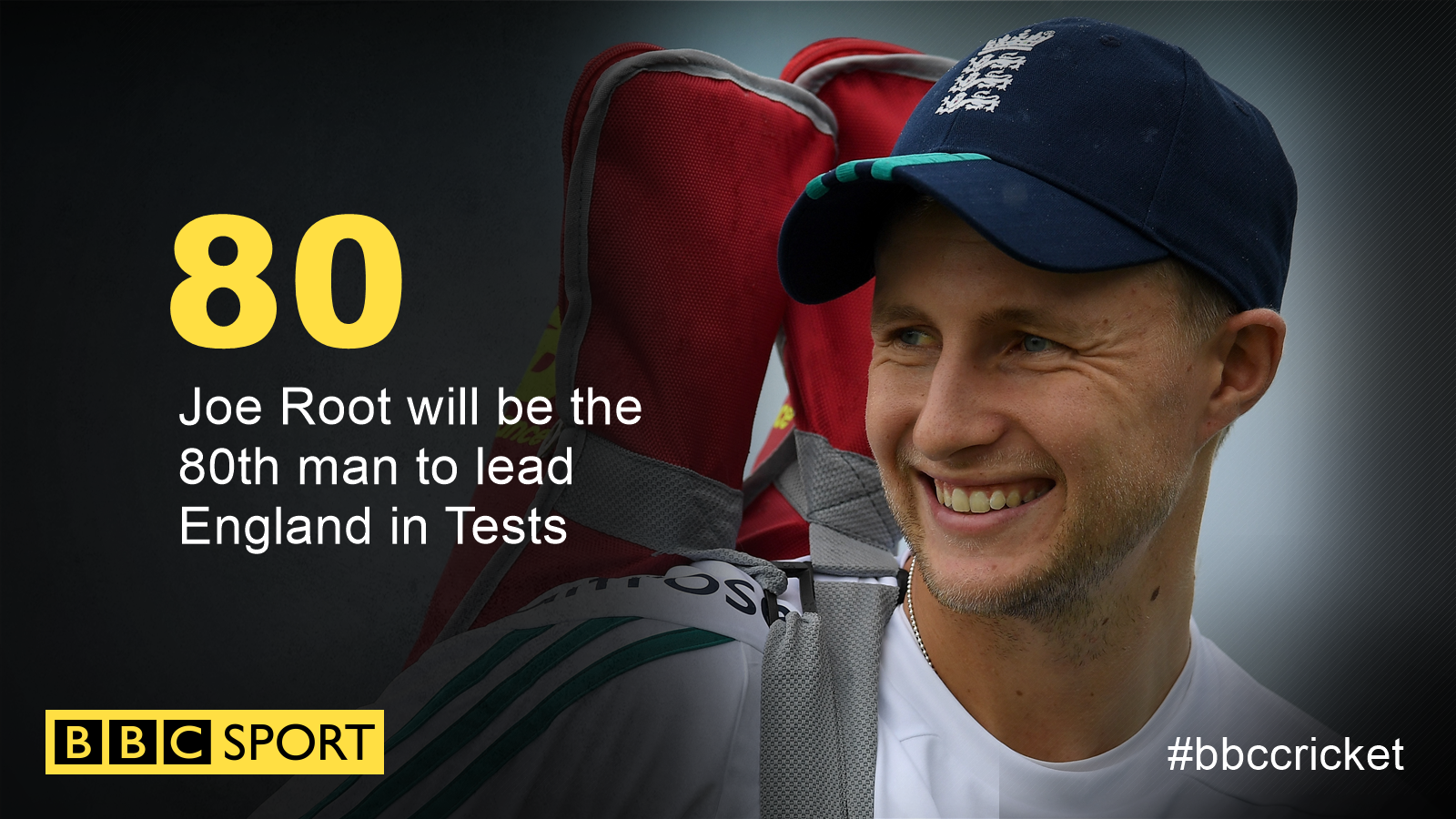
What type of captain will he be?
It is a downside of central contracts that England players have little or no opportunity to learn captaincy in the county game.
Arguably, another related negative is that a player can only ever be schooled by the limited number of captains he has played under.
Root, for example, has never played a Test under anyone other than Cook, while Cook's style of leadership was heavily influenced by predecessor Andrew Strauss.
With just those four first-class matches under his belt, Root is one of the most inexperienced captains ever appointed by England - at least Cook had benefited from 18 months in charge of the one-day side.
Root's style of leadership is therefore something of a mystery. The perception is that he will be more adventurous than Cook - but so is popping to the corner shop in your slippers instead of your shoes.
"Joe will know what he would like to improve or what he would like to do differently," said former England captain Vaughan. "When all the speculation over Cook's future began, he will have gone home at night and thought 'what if I do get the job?'
"But you're never too sure how you're going to be as a person until you get it. You can think you're going to be X or Y, but you can't be 100% sure."
Of the four times Root has led in the first-class game, one match was in charge of England Lions, with the other three as Yorkshire skipper.
In each of Root's matches as Tykes captain, fast bowler Ryan Sidebottom was part of the Yorkshire team.
"I get changed next to him and he can be a scruffy little git, but when it comes to cricket knowledge he's very clued up and knows everything about the game," said Sidebottom.
"If you look at the way he bats, he's got all the shots. He works hard on innovation, so I think he will be a creative captain.
"When he plays, he takes the game to the opposition. The English way can be quite conservative; I'm sure he'll change that for the better."
Joe Root answers our silly questions before South Africa v England in 2015-16
How will it affect his batting?
It is incredibly English to fret over how taking on the responsibility of captaincy might affect the new leader's batting (they are almost always batsmen, after all).
However, of the seven men with the most Tests as England captain, only one - Vaughan - has an average significantly worse as captain than when in the ranks.
The batting records of Cook, Strauss and Nasser Hussain are similar whether captain or not, while Atherton, Peter May and Graham Gooch saw their runs increase with responsibility, the latter two dramatically so.
It is not just English leaders with lengthy tenures who have seen a spike in their scoring.
Of Root, India's Kohli, Australia's Steve Smith and New Zealand's Kane Williamson - widely regarded as the four finest batsmen on the planet right now - the Englishman is the last of the quartet to take over as his nation's Test captain.
Each has seen an improvement in his batting average, Williamson by a small amount, Kohli and Smith by more than 20 runs each.
Realistically, though, England would probably settle for Root's record to hold steady.
His batting average of 52.80 is the highest by any England player to have played at least 20 innings since 1968. Any improvement on that would be pretty remarkable.
What about the one-day captaincy?
The status quo of Cook leading the Test side and Eoin Morgan taking charge of the one-day and Twenty20 outfits worked well for England because neither was a threat to the other. Both were miles away from getting into the teams they did not lead.
Three-format man Root's elevation to lead the Test side poses a problem for the England and Wales Cricket Board.
Do they leave Morgan, who has presided over an incredible improvement in England's one-day cricket and guided them to the World Twenty20 final, in charge, or give Root three sets of reins?
Those in favour of change will say there are very few examples of a Test captain playing for too long under a different limited-overs skipper, while any dip in results or form could increase pressure on Morgan.
However, director of cricket Strauss' crusade to bring limited-overs success to the England side has seen greater and greater separation between the red-ball and the white-ball teams. One skipper for all could be seen as a return to a uniform approach that had largely been abandoned.
And the relentless scheduling of international cricket more than justifies two skippers, particularly if resting Root from the shorter formats helps him cope with the mental and physical demands of Test leadership.
Consider the winter schedule of 2017-18. The five Ashes Tests that begin at the end of November are followed by an ODI series against Australia, which rolls into a T20 tri-series also involving New Zealand. After that, England play five more ODIs and two Tests against the Kiwis, which might not conclude until the end of March.
A player involved in all parts of that tour could be on the other side of the world for five months or more. Even two captains might not be enough.
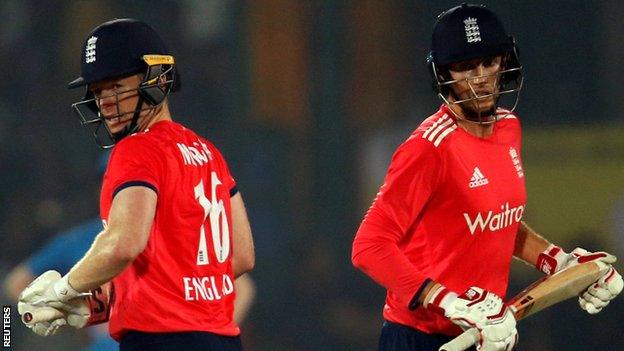
Although Root was promoted to Test vice-captain in 2015, Jos Buttler has served as Eoin Morgan's deputy in limited-overs cricket
How long might Root be captain for?
England captains have a natural shelf-life.
Of the seven skippers with the most Tests, discounting any time as a stand-in, only May's reign spanned more than five years - and that ended in 1961.
Of the longest-serving skippers since the late 1980s, Gooch managed five years, Atherton four, Hussain four, Vaughan five (with an enforced 18-month break because of a knee injury), Strauss four and Cook just over four.
From the seven longest serving of all-time, Cook has taken charge of most matches thanks to the Test-hungry nature of the ECB's scheduling department.
That Root's tenure begins with five Test-free months is an anomaly, but one that will soon be compensated for. Over the succeeding 14 months or so, England will cram in 21 Tests.
If we take July to be the proper start to Root's reign and assume that the fickle mistresses of form, fitness and results allow him to be in charge for four and a half years, then his spell as skipper could end with the 2021-22 Ashes in Australia.
By then, he could have been at the helm for more than 60 Tests - an England record - and, at his current rate of scoring, will have become the second Englishman to reach 10,000 runs.
He will have just turned 31, so will still feasibly have half a decade of Test batting left in him, much like Cook does now.
At the point, a 25-year-old Haseeb Hameed could be the next unsurprising candidate to be given the keys to the kingdom.
- Published13 February 2017
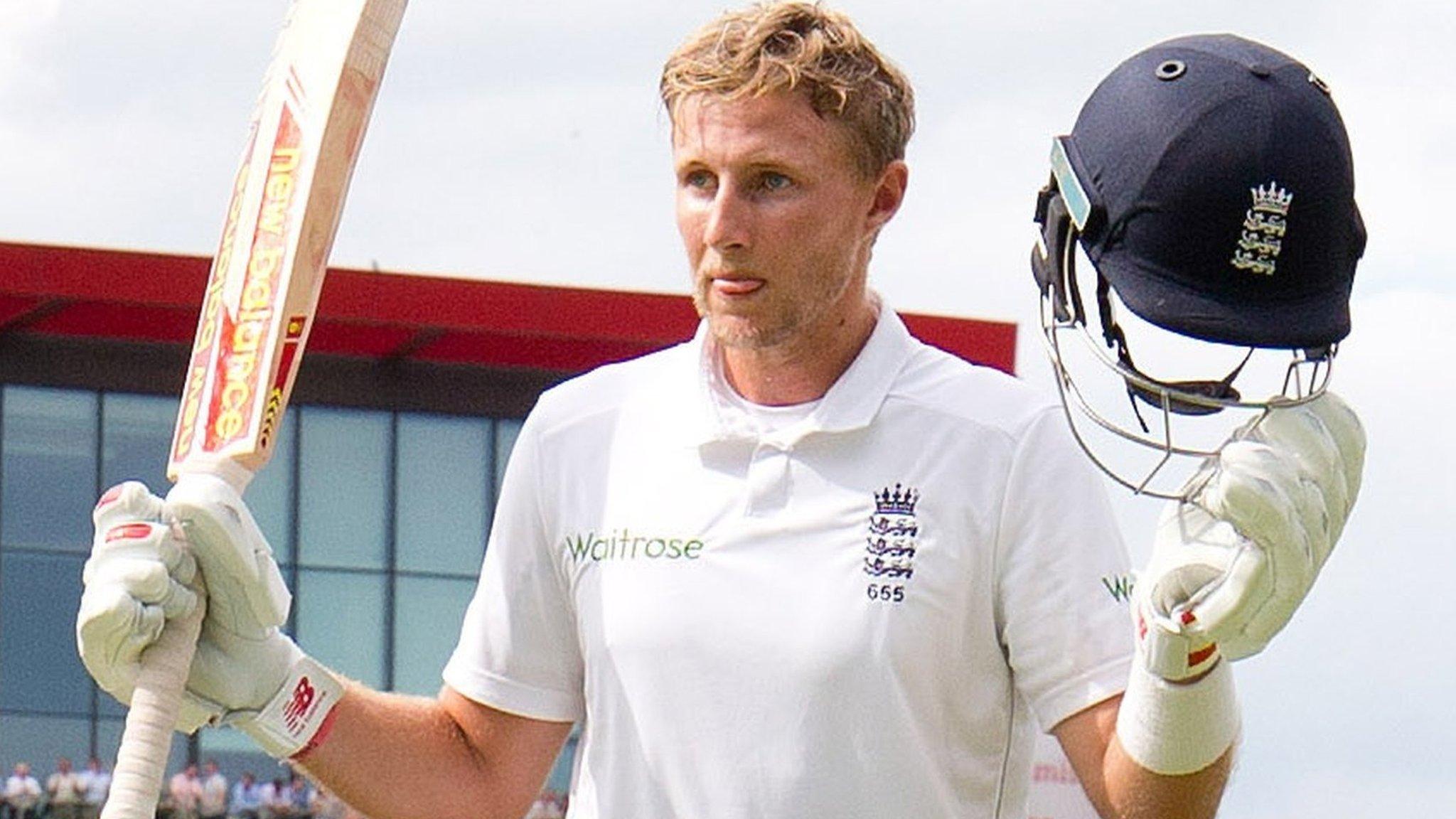
- Published13 February 2017
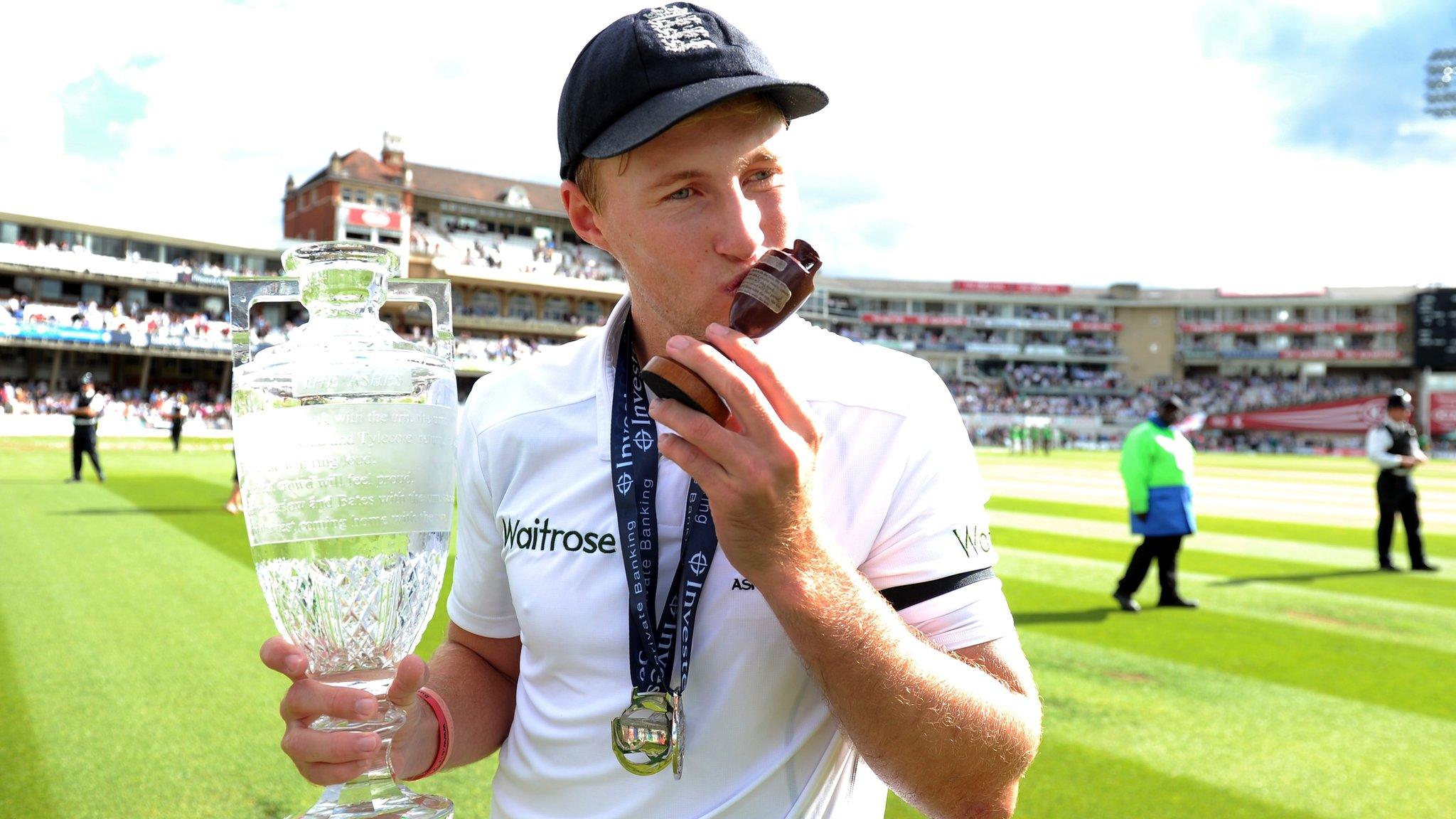
- Published10 February 2017
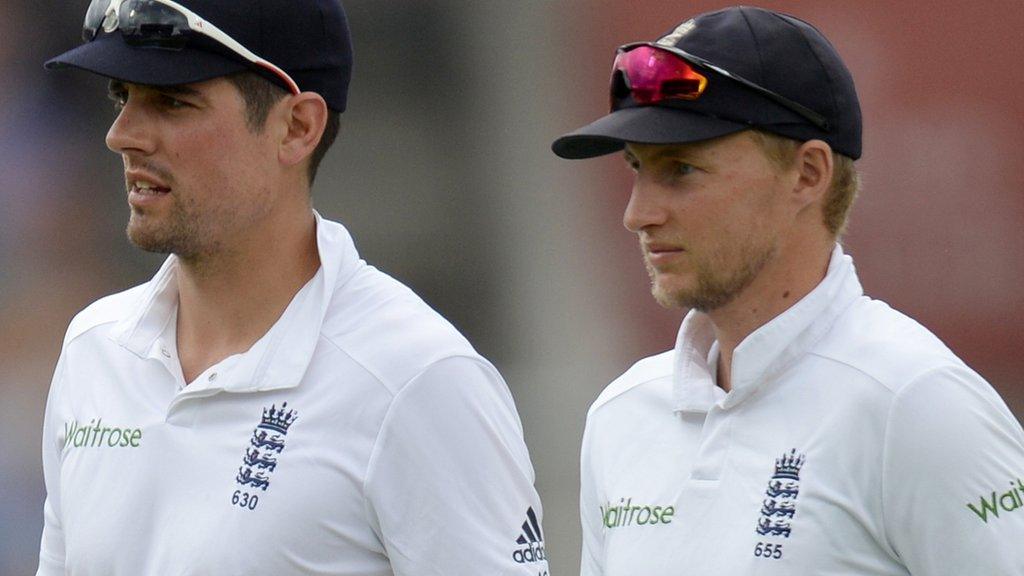
- Published7 February 2017
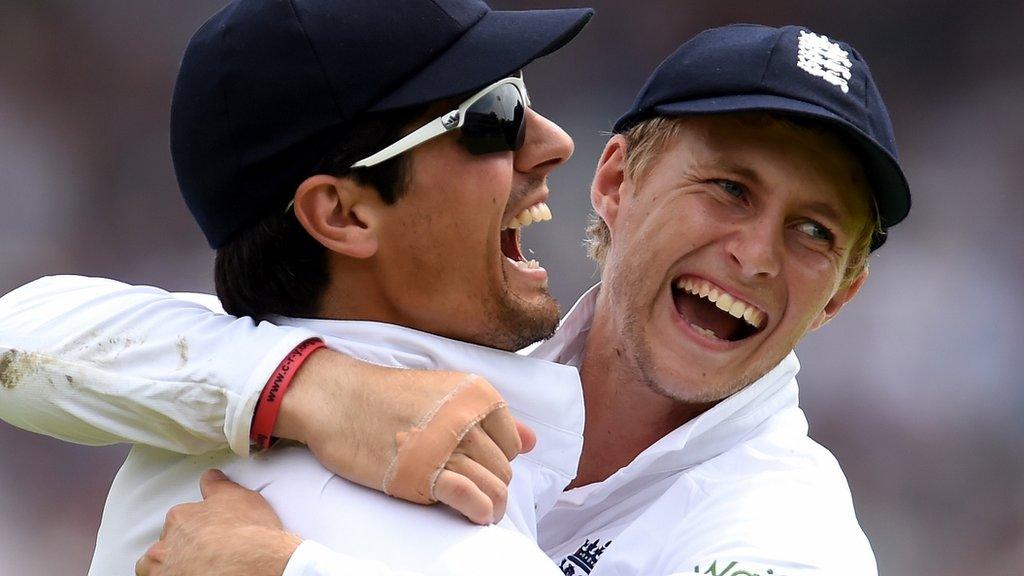
- Published6 February 2017
- Published6 February 2017
